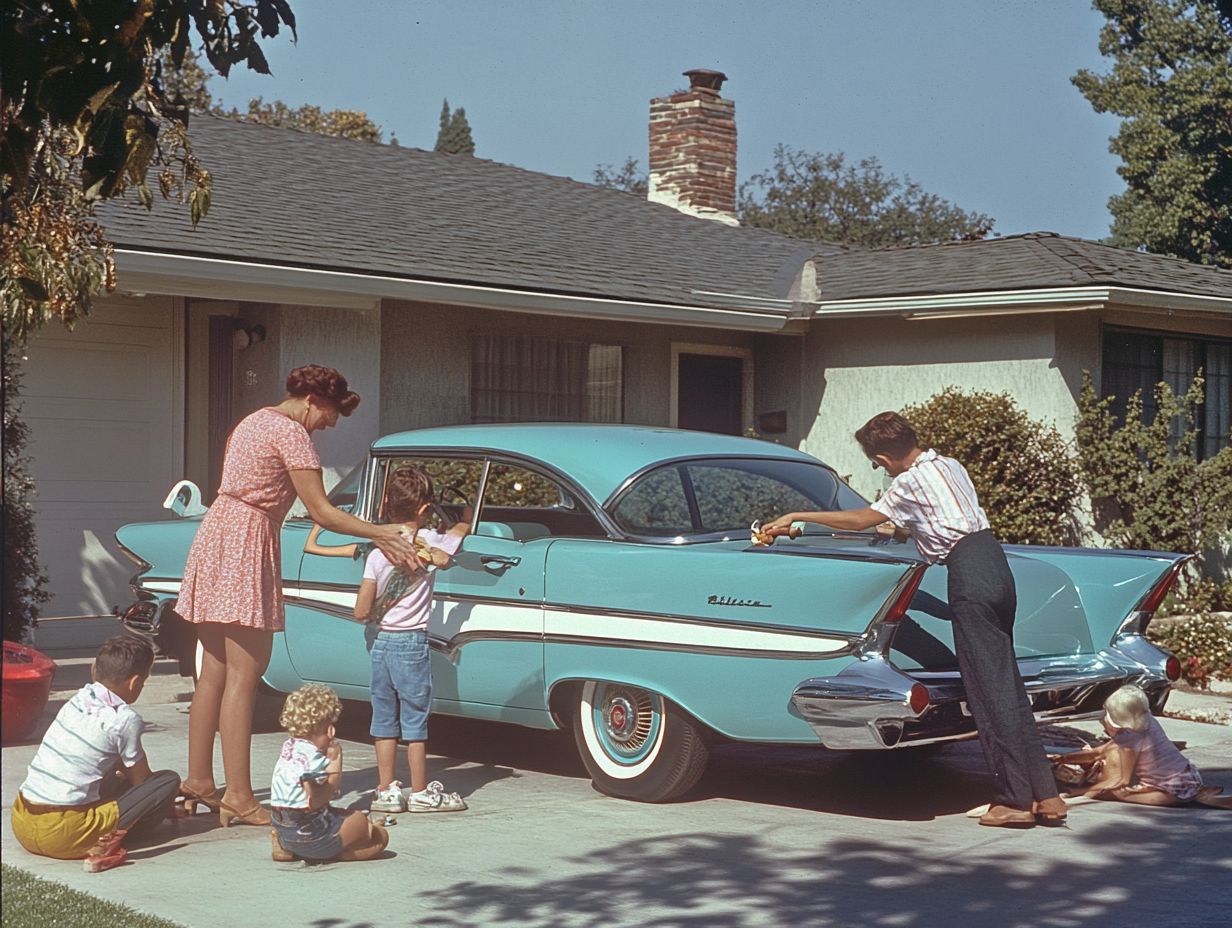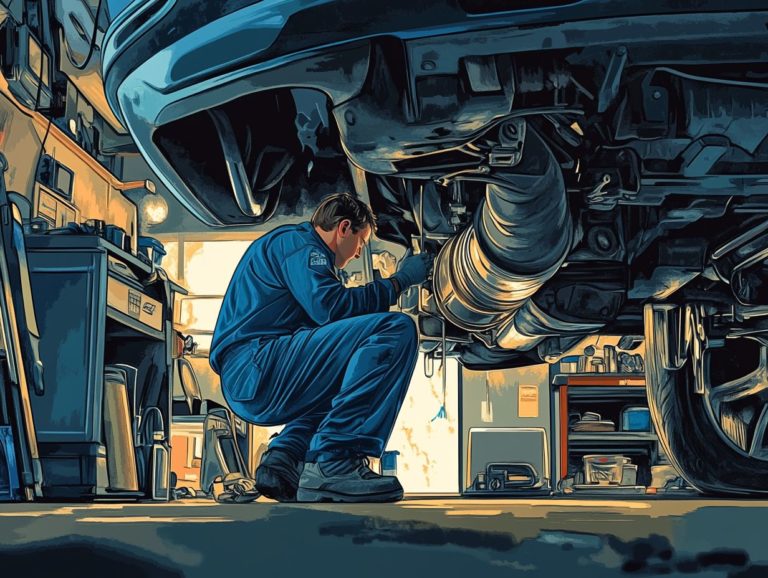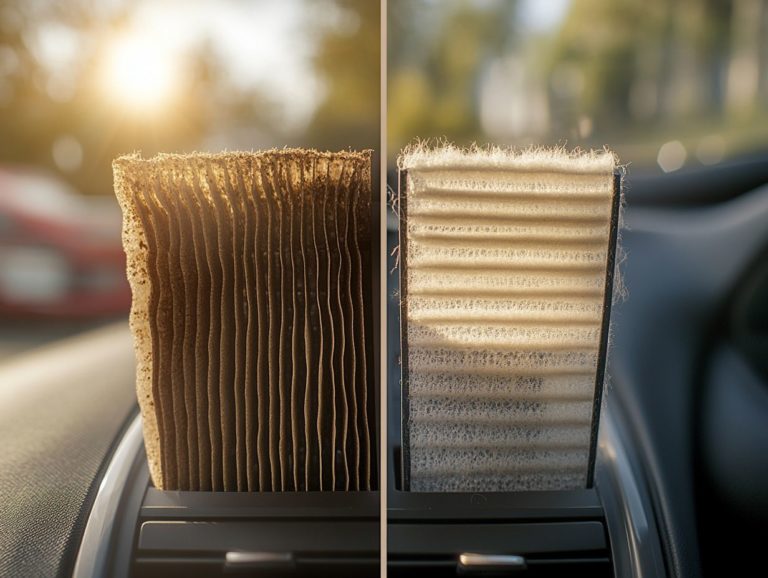Tips for Maintaining a Family Vehicle
Keeping your family vehicle in peak condition is more than just a matter of convenience; it s vital for ensuring the safety and reliability of your loved ones.
Regular maintenance tasks ranging from oil changes to tire rotations are essential for preventing breakdowns and avoiding unexpected expenses. Whether you lean towards DIY projects or prefer enlisting professional assistance, understanding the advantages and disadvantages of each option can ultimately save you both time and money.
Being prepared for emergencies and engaging the entire family in maintenance not only cultivates valuable skills but also fosters a sense of teamwork.
Explore this guide for indispensable tips on ensuring your family vehicle runs smoothly and safely.
Contents
- Key Takeaways:
- Importance of Maintaining a Family Vehicle
- Regular Maintenance Tasks
- DIY vs Professional Maintenance
- Addressing Common Issues
- Preparing for Emergencies
- Involving the Whole Family in Vehicle Maintenance
- Frequently Asked Questions
- What are some basic tips for maintaining a family vehicle?
- How often should I check and change the oil in my family vehicle?
- How important is it to keep my family vehicle’s tires properly inflated?
- What are some other important maintenance tasks for a family vehicle?
- Is it necessary to follow the manufacturer’s recommended maintenance schedule?
- How can I save money on maintaining my family vehicle?
Key Takeaways:
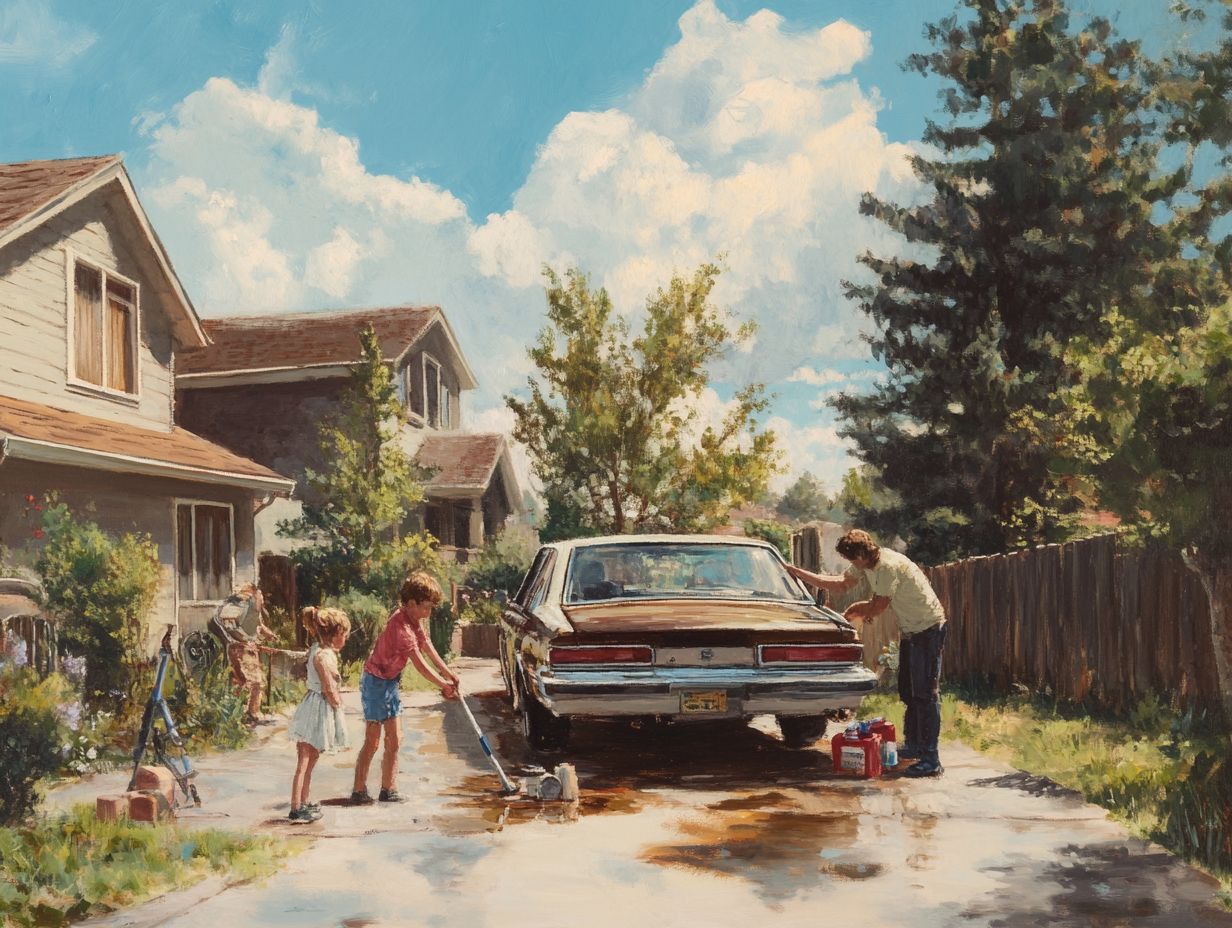
- Regular maintenance ensures safety and reliability of a family vehicle.
- DIY maintenance may save money, but professional maintenance ensures quality and expertise.
- Teaching basic maintenance skills to children can create a sense of responsibility and help in emergencies.
Importance of Maintaining a Family Vehicle
Maintaining your family vehicle is essential, not just for the safety and reliability of your journeys, but also for enriching your overall family lifestyle.
Regular upkeep of your car whether it s a Honda Odyssey, Chevy Tahoe, or Toyota Corolla can help you avoid expensive repairs and significantly extend its lifespan.
By adopting effective maintenance strategies and a thorough cleaning routine, you can ensure your vehicle stays in peak condition. This commitment not only enhances your driving comfort but also fosters efficient driving habits for both road trips and daily commutes.
Ensuring Safety and Reliability
Ensuring the safety and reliability of your family car is essential, especially when it comes to transporting kids and managing the everyday mess they create.
Regular maintenance and preventive steps like timely oil changes, checking tire pressure, and replacing air filters are crucial for keeping your vehicle running smoothly and safely.
Paying attention to the brakes, fluid levels, and light functionality significantly impacts your vehicle’s safety.
Establishing frequent cleaning routines helps tackle the chaos that comes with kids. This also allows you to identify any potential hazards that could interfere with driving.
By integrating these proactive measures into your vehicle maintenance, you effectively mitigate risks, ensuring that every family outing is both enjoyable and safe.
Regular Maintenance Tasks
Don t delay! Regular maintenance tasks are crucial for keeping your family vehicle in top shape, ensuring its longevity and optimal performance on the road.
Key aspects of vehicle service include routine oil changes, tire rotations, and periodic checks of vital components like the air filter.
Embracing these maintenance tips not only enhances driving efficiency but also helps maintain a cleaner car interior, perfectly accommodating the demands of your busy family lifestyle.
Oil Changes and Fluid Checks
Oil changes and fluid checks are among the most essential maintenance tasks that guarantee your family car remains reliable and performs at its best. These routine services are not just chores; they are key to extending your vehicle’s lifespan and reducing the chances of unexpected breakdowns.
As time passes, engine oil can deteriorate, losing its effectiveness and potentially leading to significant damage. Neglected fluids can also create serious problems, such as overheating or brake failure, which jeopardize both safety and efficiency.
It s generally advisable to change the oil every 3,000 to 5,000 miles, depending on the type of oil you use and your vehicle s specifications.
Regularly checking the levels and condition of coolant, transmission fluid, power steering fluid, and brake fluid can help you avoid costly repairs and keep your family vehicle running like a dream, allowing you to enjoy peace of mind on every journey.
Start your vehicle maintenance routine today for safer, worry-free travels with your family!
Tire Rotations and Replacements
Tire rotations and replacements are important parts of vehicle maintenance that significantly impact both safety and performance. By regularly rotating your tires, you ensure even wear.
Timely replacements can prevent potential accidents and enhance your family car’s driving efficiency. Aim to perform these routine tasks every 5,000 to 7,500 miles, depending on your driving habits and the type of vehicle you own.
Neglecting tire maintenance can lead to uneven tread wear, decreased fuel efficiency, and a diminished ability to handle adverse weather conditions. This ultimately jeopardizes the safety of all passengers.
Maintaining the correct tire pressure and replacing them when they reach the end of their lifespan extends usability and improves braking distance. This ensures that everyone in your family stays secure on the road.
Regular check-ups by a professional can reveal issues that might otherwise slip under the radar. Don t wait! Start your tire maintenance today to keep your family safe on the road.
DIY vs Professional Maintenance
When deciding between DIY and professional maintenance for your family vehicle, the choice you make can significantly affect its upkeep and performance.
Opting for DIY maintenance may save you some costs and allow for family involvement, creating a sense of togetherness. However, professional services guarantee that difficult problems are addressed correctly, ultimately enhancing the longevity and safety of your vehicle.
This is an essential consideration, especially when navigating the inevitable chaos of road trips with the kids. When considering DIY maintenance, think about the key benefits like saving money and bringing the whole family together.
Tasks such as cleaning and organizing can really enhance those bonding moments. On the flip side, professional maintenance offers expert knowledge and specialized tools.
These tools can effectively tackle more complex issues, ensuring your vehicle receives top-notch service. You might find that simple tasks like oil changes, tire rotations, and replacing air filters are well within your reach at home.
However, for intricate repairs involving the engine or electrical systems, it s best to leave those to the experts for peace of mind and safety. Engaging in DIY projects allows you and your family to acquire valuable skills while improving your vehicle’s upkeep.
But be cautious lack of experience can lead to mistakes. Hiring a mechanic may come with a higher price tag, but it guarantees that your vehicle undergoes proper diagnostics and repairs, ultimately extending its lifespan.
Striking the right balance between DIY efforts and professional services ensures that all your maintenance needs are effectively met.
Addressing Common Issues
Addressing common issues in your family vehicle is essential for maintaining its performance and safety, especially when navigating the delightful chaos that kids can create.
By troubleshooting these problems early on, you can prevent costly repairs down the line. This ensures a smooth driving experience for your family.
Troubleshooting and Fixing Problems
Troubleshooting and fixing problems with your family vehicle can feel overwhelming, but with a structured approach, it becomes much more manageable. Start by identifying common symptoms before diving into maintenance tips that will help you address issues effectively.
Begin by checking for any warning lights on your dashboard; these often indicate underlying issues that need your immediate attention. Next, consider performing a visual inspection of the vehicle.
Listen for strange noises, check for leaks, and sniff out any unusual odors. Familiarize yourself with a simple checklist of essential fluids, such as oil and coolant, ensuring they re at the proper levels.
If the problem persists, document the symptoms in detail; this will be invaluable when consulting a mechanic, streamlining the troubleshooting process. Don t forget to tap into online resources and forums.
They can provide valuable insights from fellow drivers who have faced similar challenges, enriching your toolkit for effective vehicle maintenance.
Preparing for Emergencies
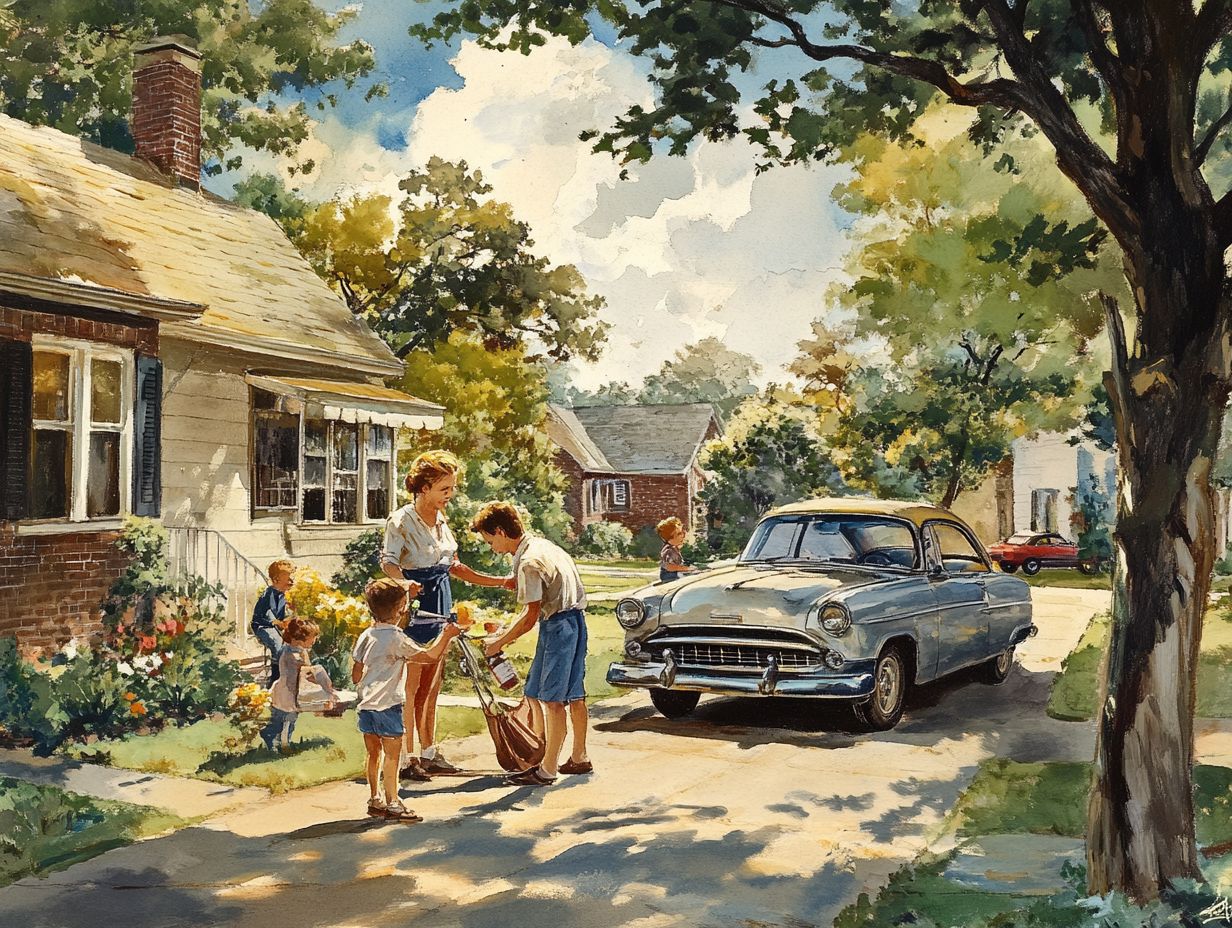
Preparing for emergencies while on the road is an essential part of maintaining your family’s vehicle. It ensures you’re equipped for any unexpected situation that may arise.
Having essential tools and car supplies, like a first-aid kit and cleaning materials, brings peace of mind and significantly enhances your vehicle’s safety during family trips!
Essential Tools and Supplies to Keep in the Vehicle
Keep essential tools and supplies in your family vehicle for safety. A comprehensive emergency kit, paired with cleaning supplies like heavy-duty paper towels, can really save the day!
Beyond these basics, integrating additional supplies can provide an extra layer of security. A first aid kit stocked with bandages, antiseptic wipes, and scissors proves invaluable during unexpected situations.
Having jumper cables ready can swiftly resolve battery issues. A tire repair kit can be a guardian angel in the event of a flat tire. Don’t underestimate the importance of reflective warning triangles and flashlights, which can be lifesavers during nighttime breakdowns!
Keeping these essentials fosters a safer environment and promotes peace of mind. This allows you and your family to focus on enjoying your travels together.
Involving the Whole Family in Vehicle Maintenance
Involving the entire family in vehicle maintenance promotes teamwork and imparts valuable skills to children. It equips them for future responsibilities.
By assigning age-appropriate tasks, you can establish a routine that keeps the car clean and organized while effectively managing the expected mess that comes with family trips.
Teaching Basic Maintenance Skills to Children
Teaching basic maintenance skills to children instills a sense of responsibility and care for the family vehicle from an early age. Engaging them in activities such as checking tire pressure or refilling windshield washer fluid allows them to truly appreciate the importance of vehicle upkeep.
These skills foster confidence and independence while strengthening the bond within the family as you work together to care for a shared asset.
Involving children in regular vehicle cleaning routines nurtures a deeper understanding of hygiene and safety, ensuring that the car remains a pleasant environment for everyone.
This knowledge equips them for future responsibilities and encourages them to take pride in their family’s well-being on the road.
Frequently Asked Questions
What are some basic tips for maintaining a family vehicle?
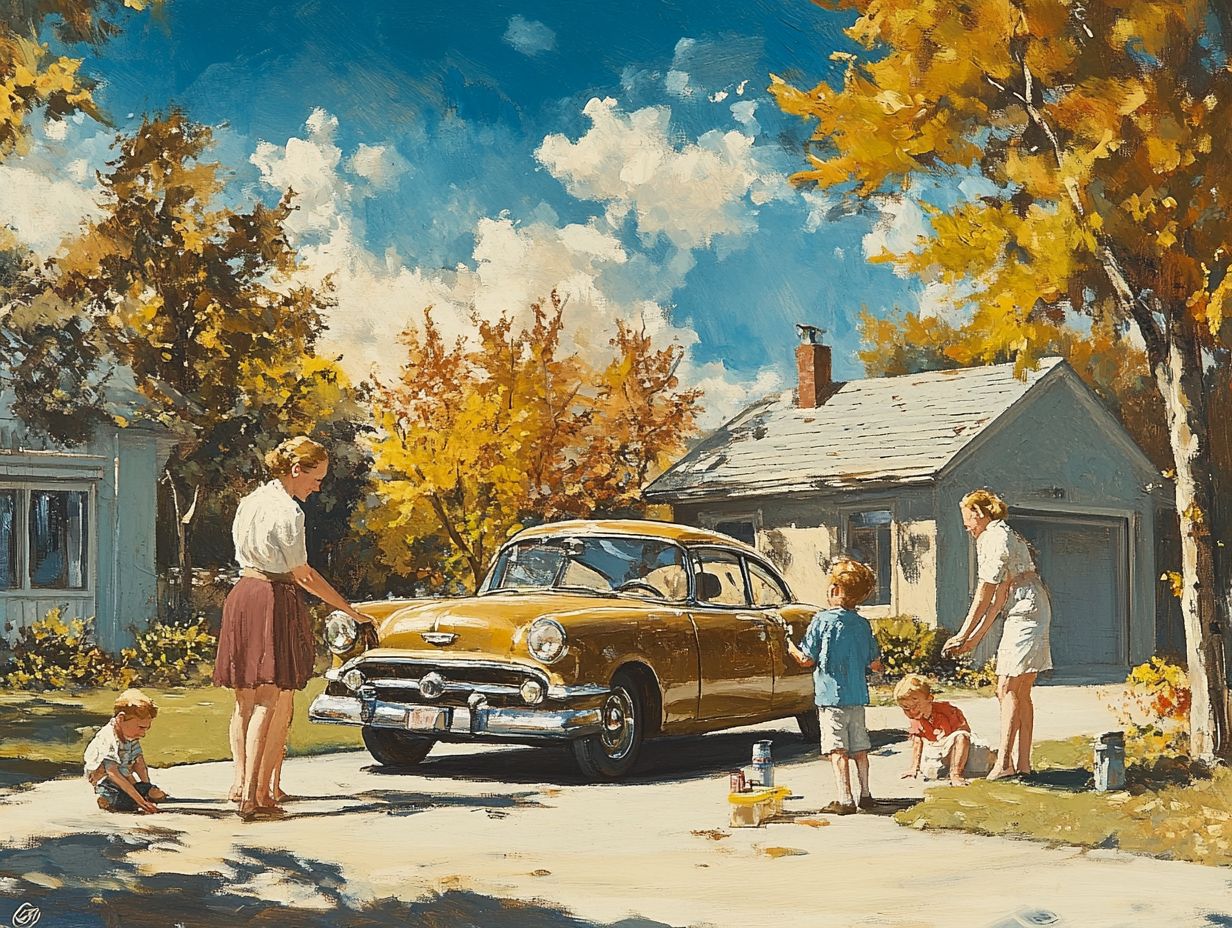
Regularly check and change the vehicle’s oil, keep tires properly inflated, and follow the recommended maintenance schedule provided by the manufacturer.
How often should I check and change the oil in my family vehicle?
It is recommended to check the oil level once a month and change the oil every 3,000-5,000 miles.
How important is it to keep my family vehicle’s tires properly inflated?
Proper tire inflation improves fuel efficiency, extends the life of your tires, and ensures safe handling on the road.
What are some other important maintenance tasks for a family vehicle?
Regularly check and replace air filters, keep fluids topped off, and inspect belts and hoses for wear and tear.
Is it necessary to follow the manufacturer’s recommended maintenance schedule?
Yes, following the recommended schedule helps keep your vehicle running smoothly and can prevent costly repairs in the future.
How can I save money on maintaining my family vehicle?
Performing basic maintenance tasks yourself, such as oil changes and air filter replacements, can save you money on labor costs. Also, be sure to shop around for the best prices on parts and services!

